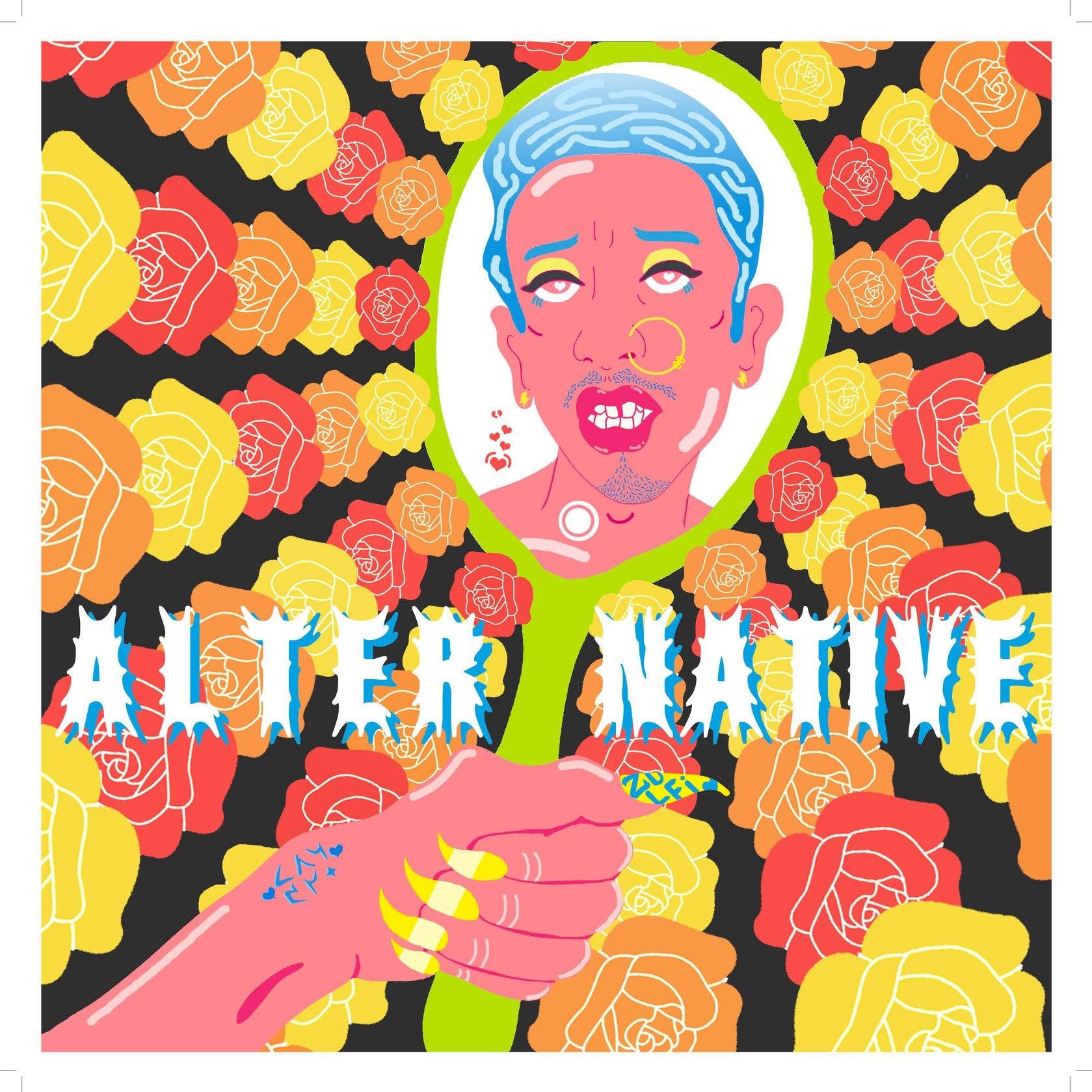
Hamza Iftikar
This album should be played loud.
“Alter/Native” was released this month by Zulfi –– aka Zulfiqar Mannan ’20. It explodes, celebrating manic youth, musing at privileges gained and lost and exploring spaces of queer adventure that most artists wouldn’t even know exist. It is, at once, a love song to Zulfi’s home metropolis of Lahore, Pakistan, and a self-consciously international party soundtrack. Zulfi may be studying abroad this semester, but their sound echoes loud on campus.
Zulfi intimates childish rebellion with a piano-mashing intro. But, ah, listen closely and you might hear: “We will go back and fight. My country beckons me.” Is that the sampled voice of former Pakistani Prime Minister Zulfikar Ali Bhutto ripping up a U.N. Security Council memorandum in 1971? No time to think about that, not yet. No time to stay in one place. Multi-instrumentalist producer Andrew Evren ’18 tolls us into “Crown” with tinkling bells, and we are launched, via Zulfi’s superb flow, into scenes of urban nightlife.
It is Lahore, maybe a few years ago. Zulfi has just been kicked out of a party. Turning braggadocio rap on its head, their response is self-conscious and self-congratulatory at once. Zulfi already knows that they’re “iconically / bad at this.” It doesn’t matter. They give it all anyway. They’re “making friends anonymously / disrespect, androgynous shit, high heels prodigy, bitch.” Zulfi is trying to, above all, make some noise.
Zulfi moves effortlessly from rap to ‘90s/’00s rock with “Be Chill” and “Locals.” Over Evren’s pounding synth and guitar work, these are odes to the femmes of Lahore. These are the girls who “run party favors” while the boys are busy with “boring ragers.” They receive impossible advice from elders, and it echoes. Zulfi reminds them: Don’t just be chill, also be “rich” and “pretty.” Wait, what? Zulfi is telling listeners to be rich?
Taken separately, the tracks of “Alter/Native” celebrate aspects of a life — whether it be wealth, or chilling, or self-satisfaction in the face of an unaccommodating world. But together, these tracks imply a life in tension with itself. A life in the process of redefinition. What kind of riches are we talking about here?
The heart of this album, the core of its philosophy, is “The Family Jewels.” It is not the catchiest tune: That would be “Diet Coke,” with its eminently danceable refrain of “Don’t you worry now, your eyes aren’t any redder than my blood.” (It’s said that pop music is comprised of meaningless drug references, to which I submit this counterexample.) “Jewels,” which begins as a ballad but quickly accelerates to an anthemic march, reveals an artist just as preoccupied with growing up as with staying young.
Zulfi promises to sell the family jewels, to repudiate their luxurious upbringing, to “buy the fight” against empire. But, at the last moment, they want to wear the jewels again. Is it so wrong, they ask, to appreciate the sparkly material one last time? Stepping down from the pedestal they built for themselves only a few tracks ago, Zulfi poses a central post-colonial question, and shamelessly, in terms of their own privilege: What do we do with internalized, destructive associations, in aesthetics and social life? When we realize that pretty things can also be pretty wrong, how do we relate to our own desires? To ourselves, and our homes?
Maybe now is a good time to re-listen to that opening audio sample, with all the conflict it implies.
Zulfi espouses a “politics of joy.” Moreover, with Evrin’s mellifluous guitar/bass that kicks the listener –– as during the chorus of “Locals” –– into a driving, manic montage of endless city streets and furnished rooms, laughing teenagers and 20-somethings from the world over, Zulfi’s sound is consistently, and politically, joyful. Even the sad vibes of “Vanity” are a celebration, of the wide-open musical space that Zulfi has created and into which listeners are ineluctably pulled.
Full disclosure/humble brag: I am not on “Alter/Native,” but I’ve played in Zulfi’s live band. Having participated in it, I believe this sort of genre-bending, postcolonial music is essential to making sense of the oncoming, shifting 21st century. And yet, “Alter/Native” is squarely within a tradition of politically unflinching poetry that wends through the fingers of Lady Gaga back towards Lou Reed, and hundreds of years further back, in Zulfi’s mind, to the Sufi poets of the Mughal subcontinent. Eclectic company of critics, indeed.
Zulfi recorded most of “Alter/Native” in marathon sessions during finals period, December 2018. Yet they managed to include tracks (like “Zara” and “Native”) that I had never heard, from the ever-growing Zulfi songbook, and that doesn’t count their Urdu music/poetry web series Dil Phaenk, which continues to produce content. At this rate (no pressure, Zulfi!) they’ll be serving enough postcolonial tea to artpop us through college and into real life, where we might sell our jewels of various kinds, our resistance armed by fancy-cheap Diet Coke martinis. As Zulfi sings in the “Jewels” outro: Till then, we dance.
“Alter/Native” is available on all major streaming platforms, including Apple Music, Spotify, SoundCloud and Patari.
Herbert Gilman | herbert.gilman@yale.edu .







